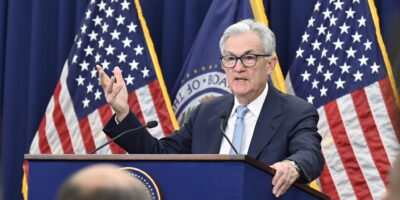Money in Liberalism
One feature of a liberal society is that its institutions, and especially its formal institutions with coercive backing, are bound by a nondiscriminatory rule of law, and work to protect the sanctity of property and contract for all persons. In such a society, the general laws of property, contract, torts, etc. govern the provision of money. Thanks to the efforts of scholars such as Lawrence White, George Selgin, and Kevin Dowd, we have a pretty good idea of how the ‘invisible hand’ handles money. In mature banking systems under liberalism, more commonly called free banking, the unit of account is a precious metal such as gold or silver. Day-to-day exchange media are bank liabilities denominated in the unit of account, which can be redeemed for a specific amount of precious metal. While paper money was much more important and prevalent in historical liberal banking systems than paper money is today, there is no reason to suppose the rise of electronic checking, account clearing, etc. could work just as well in a liberal banking system.
Money in liberalism is stable and predictable. This is not to say its purchasing power does not change. It does, such as in scenarios where the demand to hold money changes, or general production conditions tighten to make providing goods and services in general more costly. But changes in money’s purchasing power obey well-known economic laws which—and this is the most important part—are beyond the power of a single organization or institution to bring about. Nobody can meddle with the monetary system for their own personal gain, or out of misguided attempts at economic engineering.
This is why money in liberalism creates the institutional space necessary for the tug-and-pull for actual markets to work. When money is stable, i.e. when its supply is governed by general rules whose causes are known in advance and cannot be interfered with for particular gain, it enables traders to ‘speak’ with each other when they exchange. The trading behavior of market agents becomes mutually intelligible, because the medium of exchange, and hence the medium of economic reality, is used by mutual consent to mutual advantage. Money itself becomes an institution that is capable of creating and sustaining a wide division of labor. Furthermore, money can be used to communicate the conditions that necessitate changes in the structure of production, so that the plans of consumers and the plans of producers more nearly dovetail. This is why theoretical constructs such as Walrasian general equilibrium or Misesian evenly rotating economy ring true. Even in these models where there is no money, they are informed by an intuition or basic perception of economic reality in which money is indispensable. Real resource constraints have little to do with stocks and flows of physical goods and services, and much to do with the monetary system that allows these otherwise-incomparable things to be expressed in the form of a tradeoff.
In short, money in liberalism means sound money; sound money means honest money; honest money means reliable account keeping and widespread anonymous exchange. Because of this, sound money is both the daughter of liberalism, and a symbol of the peaceful cooperation promised by liberalism itself.
But money in illiberalism is a different creature entirely. I will explain in my next post how money works when the institutions governing the supply of money are de facto illiberal.









